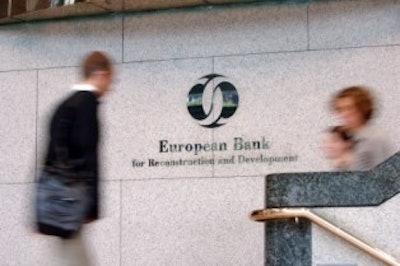
The European Bank for Reconstruction and Development (EBRD) continues to expand its agribusiness services to more countries. This year, EBRD – which promotes public/private partnerships to boost food production, improve food quality and set incentives to create the right policy environment for growth – expanded its efforts to Greece.
EBRD was established to help build a new, post-Cold War era in Central and Eastern Europe. It has since played a role and gained expertise in fostering change in the region and beyond.
The EBRD’s Private Sector for Food Security Initiative is the focus for all the bank’s operational and policy work in the field of food security.
Launched in 2011, the initiative champions the role of the private sector in boosting food production through technical assistance, policy dialogue and new financing. It also helps set incentives and create the right environment for encouraging private sector support.
The program helps introduce pre- and post-harvest financing mechanisms (such as crop and warehouse receipts systems) as well as improved trade logistics. Technical cooperation programs mainly focus on improving efficiency, the transfer of know-how, quality control, financial reporting and corporate governance standards.
EBRD has expanded its original region of operations into new countries such as Mongolia (in 2006), Turkey (2009), Jordan, Tunisia, Morocco, Egypt and Kosovo (in 2012), Cyprus (2014) and Greece (2015). It is currently active in more than 30 countries from central Europe to central Asia and the southern and eastern Mediterranean. The Czech Republic is the only member to have “graduated” from the EBRD and no longer receives investment from the bank.

















